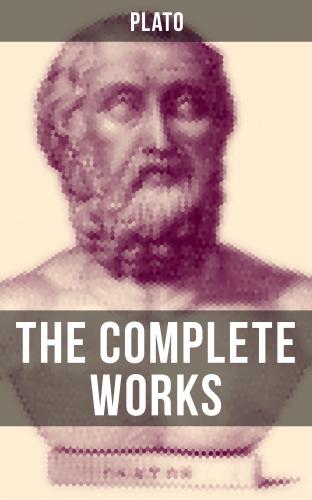ALCIBIADES: I entirely believe you; but what are the sort of pains which are required, Socrates,—can you tell me?
SOCRATES: Yes, I can; but we must take counsel together concerning the manner in which both of us may be most improved. For what I am telling you of the necessity of education applies to myself as well as to you; and there is only one point in which I have an advantage over you.
ALCIBIADES: What is that?
SOCRATES: I have a guardian who is better and wiser than your guardian, Pericles.
ALCIBIADES: Who is he, Socrates?
SOCRATES: God, Alcibiades, who up to this day has not allowed me to converse with you; and he inspires in me the faith that I am especially designed to bring you to honour.
ALCIBIADES: You are jesting, Socrates.
SOCRATES: Perhaps, at any rate, I am right in saying that all men greatly need pains and care, and you and I above all men.
ALCIBIADES: You are not far wrong about me.
SOCRATES: And certainly not about myself.
ALCIBIADES: But what can we do?
SOCRATES: There must be no hesitation or cowardice, my friend.
ALCIBIADES: That would not become us, Socrates.
SOCRATES: No, indeed, and we ought to take counsel together: for do we not wish to be as good as possible?
ALCIBIADES: We do.
SOCRATES: In what sort of virtue?
ALCIBIADES: Plainly, in the virtue of good men.
SOCRATES: Who are good in what?
ALCIBIADES: Those, clearly, who are good in the management of affairs.
SOCRATES: What sort of affairs? Equestrian affairs?
ALCIBIADES: Certainly not.
SOCRATES: You mean that about them we should have recourse to horsemen?
ALCIBIADES: Yes.
SOCRATES: Well, naval affairs?
ALCIBIADES: No.
SOCRATES: You mean that we should have recourse to sailors about them?
ALCIBIADES: Yes.
SOCRATES: Then what affairs? And who do them?
ALCIBIADES: The affairs which occupy Athenian gentlemen.
SOCRATES: And when you speak of gentlemen, do you mean the wise or the unwise?
ALCIBIADES: The wise.
SOCRATES: And a man is good in respect of that in which he is wise?
ALCIBIADES: Yes.
SOCRATES: And evil in respect of that in which he is unwise?
ALCIBIADES: Certainly.
SOCRATES: The shoemaker, for example, is wise in respect of the making of shoes?
ALCIBIADES: Yes.
SOCRATES: Then he is good in that?
ALCIBIADES: He is.
SOCRATES: But in respect of the making of garments he is unwise?
ALCIBIADES: Yes.
SOCRATES: Then in that he is bad?
ALCIBIADES: Yes.
SOCRATES: Then upon this view of the matter the same man is good and also bad?
ALCIBIADES: True.
SOCRATES: But would you say that the good are the same as the bad?
ALCIBIADES: Certainly not.
SOCRATES: Then whom do you call the good?
ALCIBIADES: I mean by the good those who are able to rule in the city.
SOCRATES: Not, surely, over horses?
ALCIBIADES: Certainly not.
SOCRATES: But over men?
ALCIBIADES: Yes.
SOCRATES: When they are sick?
ALCIBIADES: No.
SOCRATES: Or on a voyage?
ALCIBIADES: No.
SOCRATES: Or reaping the harvest?
ALCIBIADES: No.
SOCRATES: When they are doing something or nothing?
ALCIBIADES: When they are doing something, I should say.
SOCRATES: I wish that you would explain to me what this something is.
ALCIBIADES: When they are having dealings with one another, and using one another's services, as we citizens do in our daily life.
SOCRATES: Those of whom you speak are ruling over men who are using the services of other men?
ALCIBIADES: Yes.
SOCRATES: Are they ruling over the signal-men who give the time to the rowers?
ALCIBIADES: No; they are not.
SOCRATES: That would be the office of the pilot?
ALCIBIADES:
